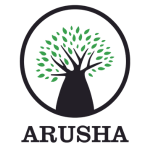When it comes to natural energy, stress relief, and overall vitality, two powerful herbs often stand out, Ashwagandha and Maca root. Both are ancient remedies celebrated for their ability to enhance stamina, hormonal balance, and mental well-being. But while Ashwagandha comes from the heart of Indian Ayurveda, Maca originates from the high altitudes of the Peruvian Andes.
So, what happens when we compare these two adaptogens head-to-head? Which one is better for energy, stress, and hormone support, especially for those following an Indian wellness lifestyle?
In this blog, Arusha Foods brings you a detailed yet easy-to-understand comparison of Maca vs Ashwagandha, exploring their origins, benefits, uses, and potential side effects. Whether your goal is to improve stamina, reduce anxiety, or support hormonal health naturally, this guide will help you decide which herb fits your wellness routine best.
What is Ashwagandha?
Ashwagandha (Withania somnifera) is a well-known Ayurvedic adaptogen that helps your body manage stress, boost energy, and support overall wellness. Commonly called the “Indian Ginseng,” it’s used to improve immunity, enhance stamina, promote better sleep, and support hormonal balance.
In Ayurveda, Ashwagandha helps balance the Vata and Kapha doshas, promoting physical and mental harmony. It’s available in powder, capsule, or extract form and can easily be added to your daily routine.
Botanical Name: Withania somnifera
Indian Local Names:
- Marathi: अश्वगंधा
- Hindi: अश्वगंधा
- Tamil: அஸ்வகந்தா
- Telugu: అశ్వగంధ
- Kannada: ಅಶ್ವಗಂಧ
- Gujarati: અશ્વગંધા
Key Benefits of Ashwagandha:
- Reduces stress and anxiety: Acts as a natural adaptogen to calm the mind and lower cortisol levels.
- Enhances energy and stamina: Boosts endurance, making it ideal for fitness and daily vitality.
- Supports thyroid and hormonal balance: Helps regulate hormones and improve thyroid function.
- Improves male fertility and testosterone: Promotes better reproductive health and performance.
- Strengthens immunity naturally: Enhances the body’s natural defense system against infections and fatigue.
What is Maca Root?
Maca root (Lepidium meyenii) is a Peruvian superfood grown in the high Andes mountains. It’s known for boosting energy, endurance, mood, and sexual health naturally. Rich in essential vitamins, minerals, and amino acids, Maca supports overall vitality and hormonal balance for both men and women.
Though not a part of traditional Ayurveda, Maca has gained popularity in India for its impressive nutritional profile and adaptogenic properties, making it a great addition to modern wellness routines.
Botanical Name: Lepidium meyenii
Local Indian Names: Maca does not have a traditional Indian name, but is often referred to as “Peruvian Ginseng.”
Key Benefits of Maca:
- Boosts energy and vitality: Naturally enhances stamina and endurance without caffeine or stimulants.
- Improves libido and reproductive health: Supports sexual wellness and hormonal balance in both men and women.
- Promotes mood balance: Helps stabilize mood swings and may reduce symptoms of stress and fatigue.
- Nutrient-rich superfood: Packed with essential nutrients like vitamins B and C, calcium, magnesium, potassium, and iron, supporting overall body health.
Ashwagandha vs Maca: Detailed Comparison
| Feature | Ashwagandha | Maca Root |
|---|---|---|
| Origin | India | Peru |
| Type | Adaptogenic herb | Adaptogenic root vegetable |
| Energy Support | Balances energy over time | Provides quick energy lift |
| Stress Relief | Excellent for chronic stress | Mild adaptogen for emotional well-being |
| Hormonal Support | Boosts testosterone, thyroid function | Improves libido, supports hormones |
| Usage in India | Widely used in Ayurveda | Gaining popularity in modern wellness |
| Suitable For | Long-term wellness, immunity | Athletes, men and women’s health, libido |
Maca vs Ashwagandha: Which One Should You Choose?
Choosing between Maca vs Ashwagandha depends on your personal health goals.
- If you want to reduce long-term stress, improve immunity, and balance hormones, Ashwagandha is ideal. You can even include Ashwagandha powder in your daily routine — mix it with warm milk, smoothies, or herbal drinks for the best results.
- If you want to boost stamina quickly, support sexual health, and improve mood, Maca is better suited.
👉 Some people even combine both for broader benefits—but always consult an Ayurvedic doctor before combining herbs.
References:
- Exploring the chemical and pharmacological variability of Lepidium meyenii: a comprehensive review of the effects of maca
- Ashwagandha (Withania somnifera)—Current Research on the Health-Promoting Activities: A Narrative Review
FAQ
Question 1: Which is better: Ashwagandha or Maca?
Answer: Both have unique benefits. Ashwagandha is better for reducing stress, boosting immunity, and balancing hormones. Maca is more effective for quick energy, stamina, and improving libido. Choose based on your specific health goal.
Question 2: Can I take Ashwagandha and Maca together?
Answer: Yes, many people use them together to get balanced energy, better focus, and hormonal support. But consult an Ayurvedic or holistic doctor before combining both herbs.
Question 3: Is Maca better than Ashwagandha for energy?
Answer: Maca gives a faster boost of energy, especially useful for workouts or fatigue. Ashwagandha gives sustained energy over time by reducing stress and improving sleep.
Question 4: Does Ashwagandha or Maca help with testosterone?
Answer: Yes. Ashwagandha is clinically studied for increasing testosterone and sperm quality in men. Maca may help improve libido and sexual stamina, but it doesn’t directly increase testosterone.
Question 5: Can women take Maca or Ashwagandha?
Answer: Absolutely. Both are safe for women. Maca is great for PMS, menopause, and hormonal balance. Ashwagandha helps with stress, fatigue, and anxiety.
Question 6: Is Maca root Ayurvedic?
Answer: No, Maca is not an Ayurvedic herb. It comes from Peru. However, it’s often included in modern wellness diets in India due to its adaptogenic and nutritive properties.
Question 7: Which herb is better for stress relief: Maca or Ashwagandha?
Answer: Ashwagandha is more effective for reducing cortisol levels and managing long-term stress. Maca has mild mood-balancing effects but is not as strong as Ashwagandha for chronic stress.
Question 8: Can Ashwagandha and Maca be used as natural supplements for bodybuilding?
Answer: Yes. Ashwagandha boosts strength, muscle recovery, and testosterone. Maca supports stamina, endurance, and energy. They can complement a fitness routine naturally.
Question 9: Are there any side effects of Ashwagandha or Maca?
Answer: Both are generally safe when taken in recommended amounts. Some may experience digestive issues or sleepiness with Ashwagandha or hormonal changes with high doses of Maca. Always start with a small dose and monitor.
Question 10: Where can I find quality Ashwagandha and Maca in India?
Answer: You can find them at trusted Ayurvedic stores, health shops, or online platforms like Arusha Foods, where purity and potency are assured.









































